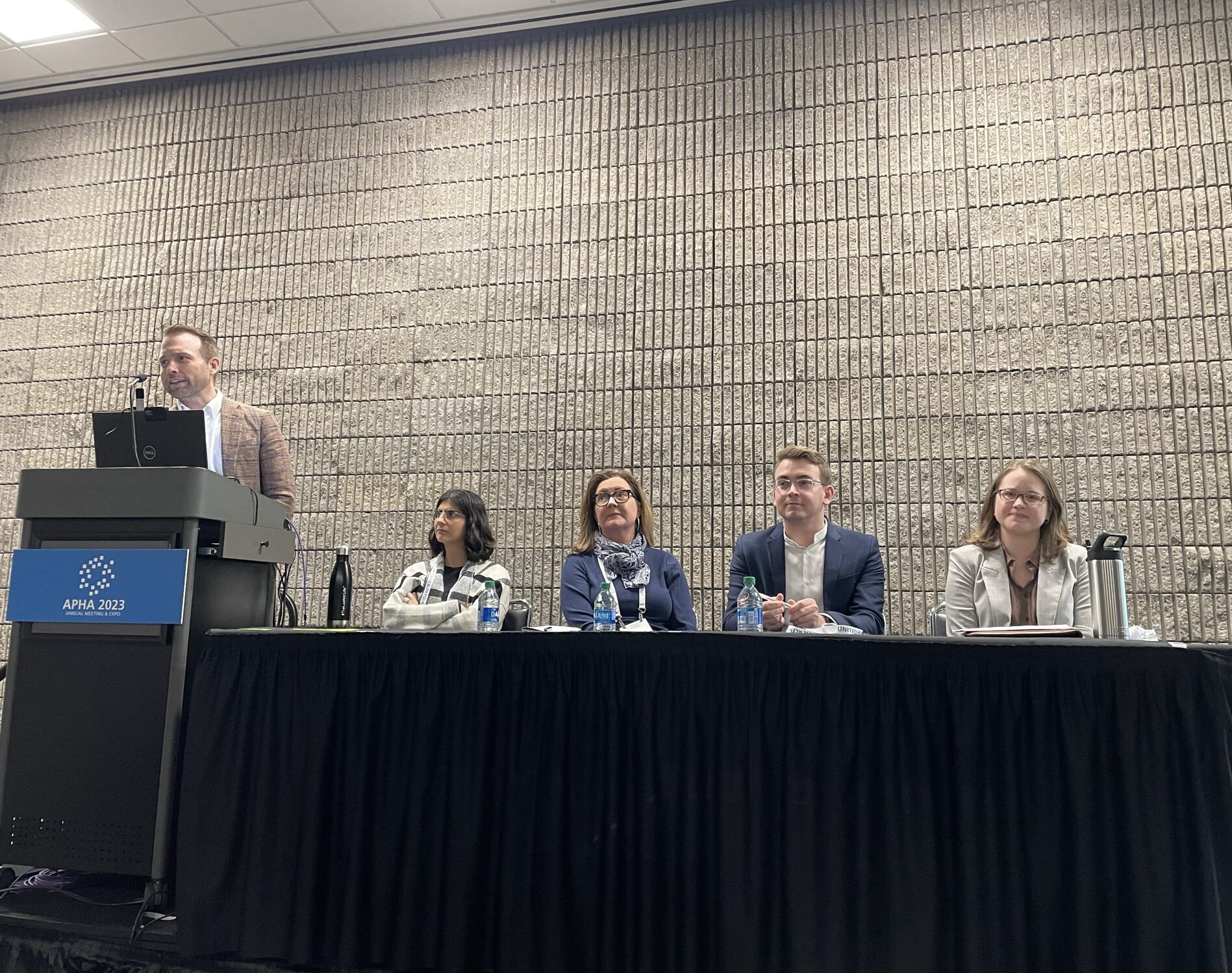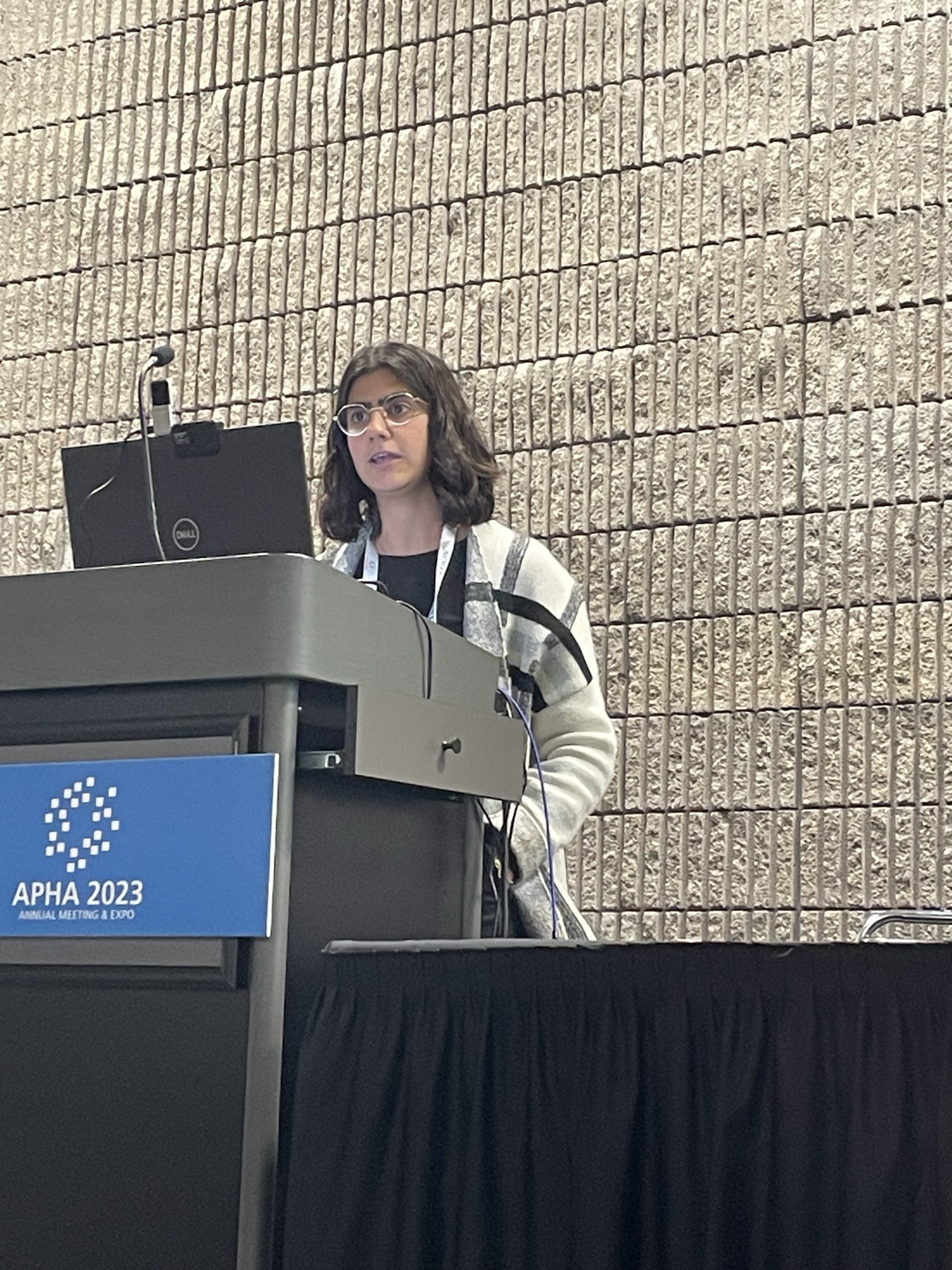By Pooja Gandhi, Kelly Clay, and Aparna Ramakrishnan
The COVID-19 pandemic was coupled with a worldwide infodemic fueled by circulation of false information, leading to confusion, rejection of evidence-based measures, undermined trust in public health agencies, and even harassment and subsequent exodus of public health workers from the work force.
In April 2021, CDC funded the 26 Prevention Research Centers (PRCs) to create the Vaccine Confidence Network (VCN). The goal was to implement and evaluate community-engaged interventions to increase vaccine confidence and uptake among the populations with the highest risk for COVID-19 and the lowest uptake of the COVID-19 vaccines. In collaboration with the CDC, Karna was responsible for coordinating and supporting the network. This included leading meetings and workgroups, hosting communication platforms, facilitating collaboration, providing technical assistance, and evaluating the network’s processes, outcomes, and impact.
For the 2023 American Public Health Association annual meeting, Karna worked with CDC and four PRCs to organize a session on the framework and strategies used by the VCN to prevent and address health misinformation. Some of the common themes across the PRCs were:
- Prevent circulation of misinformation by proactively sharing credible, understandable, and accurate information as well as equipping communities to identify and debunk misinformation
- Listen to information circulating via social media to identify misinformation and understand questions, concerns, and experiences related to recommended health behaviors
- Analyze trends in misinformation and gaps in accurate information that may be affecting social and behavioral drivers of health behaviors
- Respond to misinformation by sharing accurate information to address health knowledge gaps through trusted sources/partners and preferred communication channels/formats (online and offline)
The presentation focused on PRCs’ unique perspectives and insights on their experiences working to prevent and address vaccine misinformation in their communities:
- University of California San Francisco (UCSF) PRC highlighted efforts working with immigrant, non-English speaking communities to identify and stop misinformation from spreading
- Washington University of St. Louis (WUSTL) PRC shared experiences setting up a misinformation surveillance and response system
- Georgia State University (GSU) focused on efforts tracking misinformation among the refugee resettlement community and developing health information to meet language and literacy needs
- Yale-Griffin PRC shared insights on addressing misinformation through trusted messengers including peer navigators and community ambassadors
Overall, the panel was well-received, and highlighted PRCs’ diverse efforts to increase vaccine confidence across their communities, as well as the role Karna played in supporting these evaluation efforts across the PRC-VCN.
Currently, a number of these PRCs are working on various dissemination efforts to highlight these efforts, which Karna supports by providing content development and strategy, and hosting meetings to discuss potential manuscripts and additional dissemination opportunities.
Previous dissemination of these efforts include:
- Prevention Research Centers and COVID-19: Models of a Community-Engaged Response to a Public Health Emergency, which highlights GSU and Yale PRCs’ efforts
- Comparing the health and welfare of refugees and non-refugees at the outset of the COVID-19 pandemic: the results of a community needs assessment, which highlights GSU PRC’s efforts

Left to right: Chris Voegeli (CDC), Lucia Abscal (UCSF PRC), Karen Skinner (WUSTL), Jackson Higginbottom (Yale-Griffin PRC), Mary Helen O’Connor (GSU), present at APHA, November 2023.

Lucia Abscal (UCSF PRC) presents at APHA 2023 on USCF PRC efforts working with immigrant, non-English speaking communities to identify and stop misinformation from spreading.

